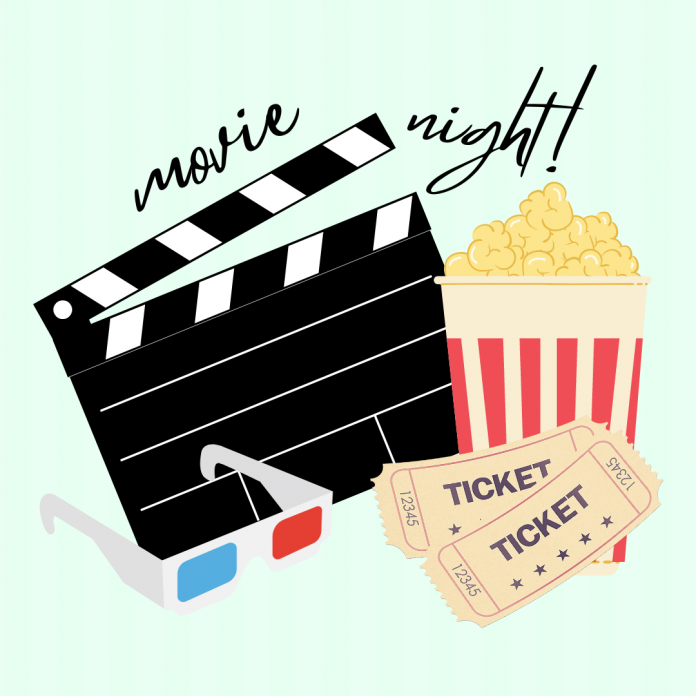Elizabeth Brady ’25 is a Public Policy major and an English minor. She loves art, music and movies, and is a member of Alpha Chi Omega. Email her at eabrady@wm.edu.
The thoughts expresses in the article are the author’s own.
The Oscars, as they usually do, happened again this year. Hot people put on sparkly clothes and are handed shiny things and then everyone goes home. There were some great movies in the nomination pool this year, including Baz Luhrmann’s widely discussed but selectively enjoyed “Elvis,” Steven Spielberg’s intimate and artful exploration of creativity and legacy in the “The Fabelman’s” and Daniel Kwan’s and Daniel Schienert’s epic whirlwind “Everything Everywhere All at Once.”
Well-represented in the nomination pool but absent among the winners was Todd Field’s and Alexandra Milchan’s “Tár,” a complicated, tense and mercurial movie about corruption, artistry and the evils of acclaim. “Tár,” although a favorite among movie snobs and critics (it has a 92% on Metacritic and an average four out of five stars from more than 289,000 reviews on the movie reviewing platform Letterboxd) failed to take home any silverware at the Oscars.
One of my favorite things to do is read one-star Letterboxd reviews of movies that I like. It’s the best type of disagreement; my interlocutor is hidden behind a Punisher logo in its profile picture, meaning that I’m anonymous in my reviews. I enjoyed “Tár,” but common complaints among those who didn’t were that it was too long, too boring or, to quote Letterboxd user @jas, “too damn quiet.”
Tár’s runtime comes in at a total of two hours and 38 minutes. In comparison, that’s 18 minutes longer than this year’s best picture winner “Everything Everywhere All at Once,” but 18 minutes shorter than the 2022 remake of “Batman,” 24 minutes shorter than “Avengers: Endgame,” and three minutes shorter than “Black Panther: Wakanda Forever.”
All three of the superhero movies mentioned earned over $350 million each in domestic box offices, so the problem isn’t with long movies — it’s with long movies that haven’t been churned out by a familiar franchise or bolstered by a multi-million dollar effects budget. “Tár”’s reception exemplifies what I’ve recently noticed to be a pushback of sorts to film snobbery that takes the form of indiscriminately dunking on any movie that comes close to being “too long,” “too boring” or “too pretentious.” We want our movies fast, we want them flashy and we want them simple.
This hunger for easy entertainment didn’t come from nowhere. Think about the way we consume media right now — the modern entertainment market is heavily geared towards short-form, easily advertisable content. TikTok, Instagram and Facebook — three of the most popular social media sites in the United States — are all organized with the purpose of pushing more and more content under the nose of the viewer. This takes the form of algorithmically suggested content and a video feed feature, in which the user scrolls down in order to access a new video. The second a user is bored, they can scroll past what they were watching and immediately move on to whatever’s next — and there’s always something next.
This pattern of consumption, in which the user can dispose of a piece of content the moment it bores them in the slightest, creates an impossible standard for longer-form entertainment. If film and television have to compete in an entertainment market where they’re up against a perpetual stream of content customized to individual users, they’ll lose every time.
Film as an artform is careful, deliberate, delicate and laborious. It took more than three years of preparation to make “Gone With the Wind,” and it takes almost four hours to watch it. Good things take time, but nowadays we hate to wait. There are also, however, bad things that take time. Sometimes, movies simply are way too damn long, scripts are slow, performances are lackluster and a story can’t support itself — it drags, slumps and falls apart. Herein lies the difference between a movie being long and a movie being too long. However, this line is getting blurrier and blurrier the more we get used to fast-paced algorithmic media consumption. When you’re used to a 15-60 second clip, every movie you watch is going to feel “too long.”
I don’t think that every movie has to be “Tár”; in fact, I do not want every movie to be “Tár.” We need movies like “American Pie” and “Zoolander” — our “Spiderman” movies and our rom-coms. What bothers me is not that “Tár” lost in the Oscars (I wanted to watch Michelle Yeoh win as much as the next guy), but why people seem to be averse to it outside of the critical sphere.
I watched “Licorice Pizza” in theaters more than a year ago. It has a two hour and 13 minute runtime, and I almost didn’t make it through. I went with a friend and smuggled in some snacks, so it should have been the perfect setup, but I was so bored. This was also the era of my life where I averaged around eight hours of screen time a day, most of it on TikTok. I deleted TikTok around a year ago, and aside from a few brief relapses, I’ve been clean ever since. I recently rewatched “Licorice Pizza”, no snacks, no friend and no big AMC Cinema screen; it was an entirely different experience. I was engaged the entire time and immediately had to do the walk of shame to change my Letterboxd score. The way I was consuming content had fried my brain so thoroughly that I couldn’t even watch movies the same way anymore.
So, if you find that your brain might be similarly fried, maybe consider a little detox, delete some apps, get some snacks, find a friend and watch a movie — the right way.


[…] Source […]
[…] Source […]